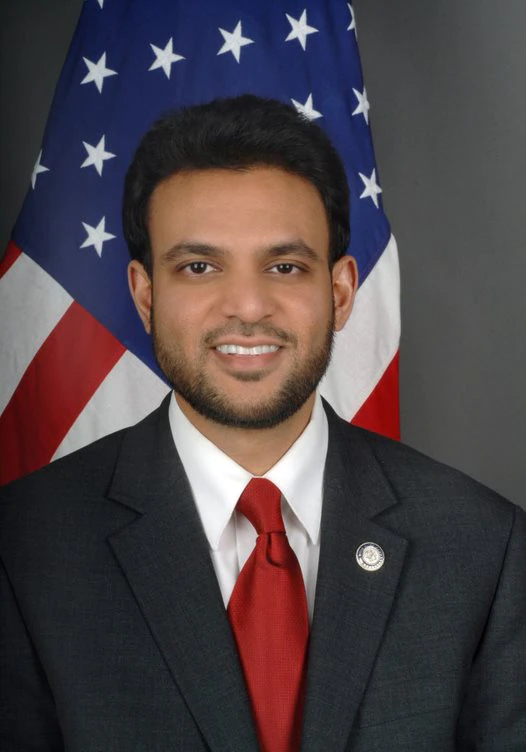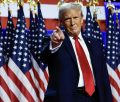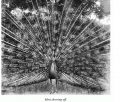‘US Concerned’ by Delay in UN Uyghur Report

 The U.S. State Department on Thursday released its annual report to Congress on international religious freedom, singling out China , Russia , Myanmar , Afghanistan , India , Pakistan and others for grievous violations.
The U.S. State Department on Thursday released its annual report to Congress on international religious freedom, singling out China , Russia , Myanmar , Afghanistan , India , Pakistan and others for grievous violations.
Secretary of State Antony Blinken and Ambassador-at-Large Rashad Hussain presented the report, citing China as one of the worst repeat offenders of violating basic rights in 2021. The report looks at religious freedoms in the nearly 200 countries around the world.
Rights groups and the U.S. government accuse Beijing of serious abuses of Uyghur rights, including torture, forced sterilization, sexual violence, forced separation of children from parents and widespread Surveillance . More than a million Uyghur s, Kazakhs and members of other minority groups have been sent to detention camps.
China has dismissed the accusations as groundless and says Xinjiang enjoys stability, development and prosperity. Beijing has also lashed out at other nations for interfering in its internal affairs.
In September 2021, the U.N. High Commissioner for Human Rights Michelle Bachelet told the U.N. Human Rights Council in Geneva that her office was “finalizing its assessment of the available information on allegations of serious human rights violations in [Xinjiang] with a view to making it public.”
In December, a spokesperson for Bachelet said the report would be released within a few weeks. The report still hasn’t been made public.
Hussain told VOA’s Persian Service, “We’ve made clear that we’re really concerned about the delay in the report. The situation there is urgent, it needs to be addressed immediately.”
The following interview has been edited for brevity and clarity.
VOA: What are your thoughts on the U.N. human rights commissioner’s visit to China and the delay in the long-awaited U.N. report on China ‘s treatment of Uyghur s in Xinjiang ?
AMBASSADOR-AT-LARGE HUSSAIN: We’ve made clear that we’re really concerned about the delay in the report. The situation there is urgent, it needs to be addressed immediately, as we’ve done. China ‘s been designated a “Country of Particular Concern” for a number of years. They continue to engage in genocide and crimes against humanity against the Uyghur population. But I should also note that China has been repressing other minority groups as well, including Tibetan Buddhists, Falun Gong, other Christians, Hui Muslims. With regard to China , we have, through Congress, passed the Uyghur Forced Labor Prevention Act, which the president (Joe Biden) signed into law.
We’ve implemented a series of financial sanctions and visa restrictions. As you know, we made the decision not to have any diplomatic representation at the Olympics. So we’re going to continue to use all of our tools available in our toolkit. I’ve been working, actually, very closely with OIC (Organization of Islamic Cooperation) countries to make sure that they’re doing everything that they should be doing to speak out about the situation in China . For far too long, a number of countries have remained silent in the face of Chinese oppression of the Uyghur s, and there’s a number of countries around the world who routinely stand up for Muslim communities that are suffering and certainly that’s the case in China . So a full range of diplomatic efforts, including bilaterally, multilaterally through sanctions, and also as we have done today, highlighting the plight and the evidence, the strong evidence of satellite imagery that we see of detention camps, of internment camps, the stories of those who have gone through the abuse that they’ve faced in the internment camps, those that have been able to escape. Those stories are stories that we document very clearly in our report. And it’s something that we do for every country around the world. But the situation in China is urgent, and we continue to use all of our tools to address it.
VOA: With the history that you just mentioned, do you think it was the correct decision for U.N. High Commissioner for Human Rights Michelle Bachelet to have traveled to China ?
HUSSAIN: We’ve expressed our view on this issue a number of times. We believe that there should not be a delay in the release of her report. And unfortunately, due to the delay in the trip, the report has been delayed. It’s very important to document the evidence that we know is there. We’ve seen it through so many sources. And even if you just look at the statements that the Chinese government has made, the PRC (People’s Republic of China ) has made, in conceding some of the conditions that exist there now shifted, shifted from a position where before they used to deny altogether anything was happening, and now they’re moving more toward a position of trying to justify what’s happening. So even by their own admission, there is significant evidence to be deeply concerned about the situation there.
VOA: The Chinese government frequently points to evidence of racism and discrimination in the U.S. when Beijing is being criticized for its own policies on religious freedom. Can you explain why the U.S. has the authority to call out the shortcomings for religious freedom and other human rights issues abroad when many see there’s still a lot of work to be done in the U.S.?
HUSSAIN: I can speak to this issue very personally. I’m an attorney. I’m someone who has worked on civil rights issues, constitutional issues, issues involving terrorism, including cases where there’s been violent extremism right here in the United States . The big difference is that, first of all, there’s accountability in the United States from law enforcement. If you engage in a crime against a religious minority, that crime is investigated, that crime is prosecuted, you go in front of the jury, and when they find evidence beyond a reasonable doubt, there is a penalty for that. What we’re concerned about in many countries around the world, including China , is when you have a government that itself has engaged in policies that are discriminatory, and when they’ve tolerated actions in society, without holding those that are responsible accountable. So here in the United States, we have a long history where we have made progress with regard to policies and ensuring nondiscrimination, including through landmark legislation, the 1964 Civil Rights Act, for example. Initiatives that we continue to implement today to seek equal protection under the law for all people. And when those laws were violated, we respond, and we take them very seriously.
VOA: Last month, a Christian student was stoned and burned to death in the northwestern city of Sokoto, Nigeria , after she allegedly blasphemed the Prophet Muhammad. Tensions rose across the country, which has a large number of Muslims and Christians. What role can the U.S. play in minimizing religious tensions, which have escalated as elections approach?
HUSSAIN: I’m very familiar with the unfortunate case of Deborah Samuel and made a statement on that last month. Our hearts go out to her family, and that type of violence is appalling and absolutely unacceptable. We’ve been in very close communication with the Nigeria n government and with civil society in Nigeria . It’s important that blasphemy laws are not used as the basis for allegations to attack individuals. It’s important that they’re not used as tools and legal proceedings to criminalize speech. And it’s important that the government takes actions to hold perpetrators accountable. We have seen the government of Nigeria take action, but there are instances in which we’ve called on Nigeria to make sure that they’re using the full extent of the law to prosecute those that engage in violence against religious minorities. It’s important that we continue to work with civil society.
There are a number of religious leaders, for example, who have played such a strong role in trying to quell violence in Nigeria . There are religious leaders in Nigeria whom I’ve met with personally, both in Nigeria in the United States , Christian leaders and Muslim leaders who have said, “Enough is enough. We cannot use Islam, we cannot use any faith as a basis for interpretations that would justify violence against innocent people.”
So there are a number of steps that we’re taking, working with the government, working with civil society, including religious leaders working at the multilateral level, as well. And it’s something that we have to remain persistent on because it’s not, unfortunately, a situation that will change overnight.
VOA: Religious freedom in Iran has been violated by the Islamic Republic for the past four decades, despite continuous condemnations. What leverage does the U.S. have to put more pressure on Iran to observe the rights of religious minorities?
HUSSAIN: First of all, today’s report is an opportunity to highlight the plight of the Iran ian people who are facing persecution. We stand in support of the Iran ian people. And when we document what is happening, that’s an important first step. This is a unique report, unlike anything that’s issued anywhere in the world. We have 2,600-plus pages meticulously going through the conditions that people face in Iran , whether it’s the Baha’is or Christians or non-Shia Muslim population, we remain deeply concerned. That’s why Iran continues to be designated as a “Country of Particular Concern.” We always welcome the opportunity to take any steps that we can with governments around the world to improve the situation for religious communities to improve human rights overall. And we’ll continue in our efforts to support civil society to speak out, to work with the international community on the situation in Iran , but there are also consequences for actions that violate human rights. And so we continue to use all the diplomatic tools that are available to us to address deeply concerning human rights situations.
VOA: But these diplomatic tools haven’t really changed Iran ‘s behavior.
HUSSAIN: Yeah, it’s interesting to consider what might be the case if there was no one to shed light on what’s happening in Iran , such as we do in our report, if there was no country or coalition of countries that continues to maintain pressure. So I would argue that the steps that we’re taking, they do have an impact. We have to continue to take them. We have to continue to support the people of Iran . And to continue to use all the tools that are available. But, ultimately, the burden of responsibility lies on those who would target religious minorities or implement any discriminatory policies to take further action to help people that are there. We’ll continue to do everything we can in our power.
……………………………
-
Book Shelf
-
 Book Review
DESTINY OF A DYSFUNCTIONAL NUCLEAR STATE
Book Review
DESTINY OF A DYSFUNCTIONAL NUCLEAR STATE
- Book ReviewChina FO Presser Where is the fountainhead of jihad?
- Book ReviewNews Pak Syndrome bedevils Indo-Bangla ties
- Book Review Understanding Vedic Equality….: Book Review
- Book Review Buddhism Made Easy: Book Review
- Book ReviewNews Elegant Summary Of Krishnamurti’s teachings
- Book Review Review: Perspectives: The Timeless Way of Wisdom
- Book ReviewNews Rituals too a world of Rhythm
- Book Review Marx After Marxism
- Book Review John Updike’s Terrorist – a review
-
-
Recent Top Post
-
 CommentariesTop Story
India’s Migration Dilemma
CommentariesTop Story
India’s Migration Dilemma
-
 Commentaries
Crowd Management Blues
Commentaries
Crowd Management Blues
-
 Meher Baba SpeaksNews
Meher Baba Loved Them Too…
Meher Baba SpeaksNews
Meher Baba Loved Them Too…
- Commentaries Record Pentagon spending bill and America’s hidden nuclear rearmament
-
 CommentariesNews
Ides of trade between India and Pakistan
CommentariesNews
Ides of trade between India and Pakistan
-
 Commentaries
How sustainable is the rhetoric of India-China Bhai-Bhai
Commentaries
How sustainable is the rhetoric of India-China Bhai-Bhai
-
 CommentariesTop Story
New Set of Diplomatic Strains with Canada
CommentariesTop Story
New Set of Diplomatic Strains with Canada
-
 News
Ratan Tata’s Legacy
News
Ratan Tata’s Legacy
-
 Commentaries
India’s Strategic Push on the World Stage
Commentaries
India’s Strategic Push on the World Stage
- Commentaries Veils of Resistance
-
AdSense code
















